Afghanistan War, CIA Sponsored Terror, Civil Liberties, Human Rights, Iraq Veterans, Iraq War, Military Tribunal, Political Prisoner, Prison Industry, Supreme Court, Targeting Muslims, Torture, Truth to Power, War Resister
Podcast: Play in new window | Download
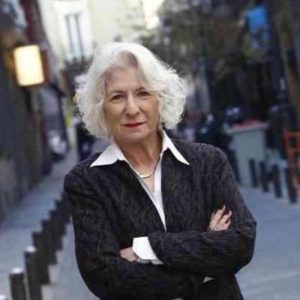

Lawyers You’ll Like: Attorney Nancy Hollander
Occasionally Law And Disorder has featured interviews with significant attorneys. We call this segment of the show Lawyers You’ll Like. One such attorney is today’s guest, Nancy Hollander. She has been practicing criminal defense lawyer in Albuquerque, New Mexico and has been a partner since 1980 in the law firm of Freedman, Boyd, Hollander, Goldman, Urias, and Ward.
Nancy Hollander‘s practice has largely been devoted to representing individuals and organizations accused of crimes, including those involving national security issues.
She was one of the attorneys in the landmark Holy Land Five case. She won whistle blower Chelsea Manning’s release in 2017 when President Obama commuted her sentence from 35 years to seven years. Although not currently representing Manning she has met with her recently. Manning has been jailed for two months for refusing to cooperate with a grand jury in Virginia which is investigating Julian Assange of WikiLeaks. Manning released the famous Iraqi war log video showing American war crimes in Iraq to Julian Assange of WikiLeaks. He is in prison in London awaiting extradition and trial in Virginia where he faces 175 years in prison if convicted of Espionage Act violations. She represented Mohamedou Ould Slahi, whose release she obtained after he served 15 years in Guantanamo without ever being charged.
Write to Chelsea Manning:
Chelsea Manning – AO181426
William D. Truesdale Adult Detention Center
2001 Mill Road
Alexandria, Virginia 22314
Guest – Attorney Nancy Hollander has been a member of the firm Freedman Boyd Hollander Goldberg Ives & Duncan, P.A. since 1980 and a partner since 1983. Her practice is largely devoted to criminal cases, including those involving national security issues. She has also been counsel in numerous civil cases, forfeitures and administrative hearings, and has argued and won a case involving religious freedom in the United States Supreme Court. Ms. Hollander also served as a consultant to the defense in a high profile terrorism case in Ireland, has assisted counsel in other international cases and represents two prisoners at Guantanamo Bay Naval Base. Nancy is co-author of WestGroup’s Everytrial Criminal Defense Resource Book, Wharton’s Criminal Evidence, 15th Edition, and Wharton’s Criminal Procedure, 14th Edition. She has appeared on national television programs as PBS Now, Burden of Proof, the Today Show, Oprah Winfrey, CourtTV, and the MacNeill/Lehrer News Hour.
—-

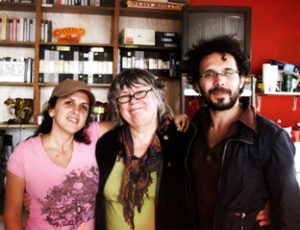
Supreme Court: Cable Companies Can Limit Public Access
Last month United States Supreme Court in a 5 to 4 decision written by Brett Kavanaugh decided that TV cable companies can, in the words of our guest, losing plaintive DeeDee Halleck, “censor whatever, whoever, and whenever they want.”
Cable companies like Manhattan Neighborhood Network can now limit public access that carry TV shows to be available in hundreds of cities and towns.
The Supreme Court held that Manhattan Neighborhood Network is not subject to First Amendment constraints, that the free-speech clause of the First Amendment prohibits only governmental, not private abridgment of speech and that MNN is a private company.
Judges Cavanagh, Robert, Thomas, Alito, and Gorsuch is found against the free-speech argument of Halleck and her co-plaintiff Jesus Melendez. Judge Sotomayor wrote the dissent which was joined in on by Ginsberg, Breyer and Kagan.
Guest – Deedee Halleck one of the plaintiffs in this case and among the top media activists. She’s co-founder of Paper Tiger Television and also the Deep Dish Satellite Network, the first grass roots community television network. She is Professor Emerita in the Department of Communication at the University of California at San Diego.
—————————–

—————————–
CIA Sponsored Terror, Civil Liberties, Cuba, Human Rights, Truth to Power, War Resister
Podcast: Play in new window | Download

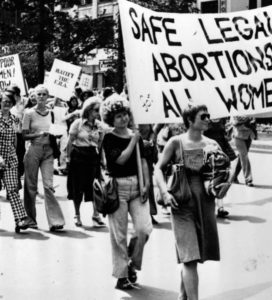
Analyzing Recent Abortion Legislation
Halfway through 2019 nine states have already passed bills to limit abortion. Louisiana recently passed a ban on the medical procedure after a fetal heartbeat is detected. That makes it the 9th state in 2019 year to pass abortion restrictions that could challenge the constitutional right established in Roe v.Wade.
Alabama legislators also recently voted to ban abortions in nearly all cases. Other measures, like Louisiana’s, have limited the procedure to earlier in pregnancy, typically around six weeks.
Georgia, Kentucky, Louisiana, Missouri, Mississippi and Ohio stopped short of outright bans. They’ve passed so-called heartbeat bills that effectively prohibit abortions after six to eight weeks of pregnancy. That’s when doctors usually start detecting a fetal heartbeat. Utah and Arkansas voted to limit the procedure to the middle of the second trimester.
Most other states follow the standard set by the Supreme Court’s 1972 Roe decision, which says abortion is legal until the fetus reaches viability, usually at 24 to 28 weeks.
The latest bans are not yet in effect (Kentucky’s was blocked by a judge), and all bans are expected to face protracted court battles. What does all this mean? More states are considering and will likely pass measures similar to that in Louisiana in an attempt to challenge Roe v. Wade.
Guest – Attorney Elisabeth Smith from the Center for Reproductive Rights. Elisabeth is their Chief Counsel for State Policy. Before that she was Legislative Director at the ACLU of Washington where she was the Legislative Director.
—-
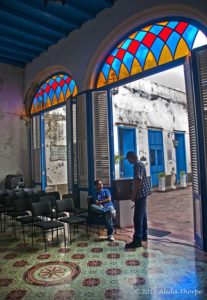
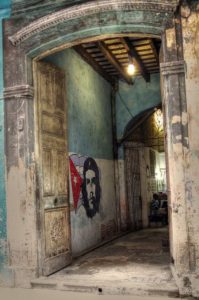
Cuban Revolution 60th Anniversary And The 1996 Helms-Burton Act
July 26, 2019 marks the 60th anniversary of the Cuban revolution. On that date revolutionary troops led by Fidel Castro and Che Guevara marched into Havana. The American supported dictator Batista fled to the Dominican Republic. Other rich Cubans went to Miami. At that time the wealth of Cuba, it’s vast fertile sugarcane and tobacco fields, it’s oil refinery, its phone company, were owned by US corporations and a handful of wealthy Cubans.
To obstruct the revolution, the US owned oil refinery stopped providing oil so there was no gasoline. In response, the Cuban revolutionaries nationalized the refinery, then the phone company, the nickel mines, and the vast land holdings. This was the beginning of the Cuban revolution The Cuban government offered to pay the owners for the nationalized property in the amount that the owners had listed the properties for tax purposes. The owners refused to take the money. Since then the American government has waged economic warfare on Cuba.
In an escalation of this warfare Last week we saw the instigation of the dormant title III section of the anti-Cuba 1996 Helms-Burton Act. This law permits US citizens to sue anyone anywhere in the world in American Courts for using property legally expropriated by the Cuban government after the revolution. Expropriation of a foreign owned property is legal under international law so long as the owners are compensated.
In addition to the invocation of the Helms-Burton law the US government has ended people to people travel to Cuba and drastically reduced the amount of money Cuban Americans living in the US can remit to their families on the island.
Guest – Netfa Freeman, policy analyst with the Institute for Policy Studies and an Organizer in the International Committee for Peace Justice & Dignity.
———————————–

———————————–
Censorship, CIA Sponsored Terror, Civil Liberties, Criminalizing Dissent, Human Rights, Iraq War, NSA Spying, Political Prisoner, Prison Industry, Torture, Truth to Power, War Resister
Podcast: Play in new window | Download
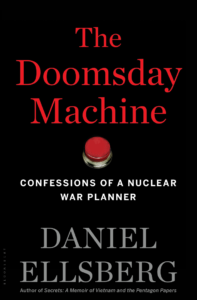
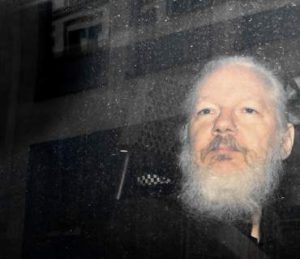
Daniel Ellsberg: Julian Assange’s Case And The Doomsday Machine
Two weeks ago the Trump administration announced it had indicted Julian Assange in the Eastern District of Virginia on 17 counts of violating the 1917 Espionage Act. Assange is currently in the Belmarsh prison hospital in London. If extradited, tried, and convicted he faces 175 years in prison.
The Espionage Act is a 102 year old law used initially to imprison the great socialist Eugene V Debs for an anti-World War I speech he gave in Canton, Ohio and also used to crush the industrial workers of the world, the IWW, a large antiwar union at the time.
In 1971 it was famously used against Daniel Ellsberg who released the Pentagon papers to the New York Times and other media outlets. Lately the Espionage Act has been used against many truth telling whistleblowers during the Obama and Trump administrations.
This is the first time it is being used against a journalist.
Wikileaks Defense Funds:
Guest – Daniel Ellsberg, educated at Harvard and Cambridge and has been an activist since the 1970s. Ellsberg’s latest book, The Doomsday Machine, is an extensive study of nuclear theory and nuclear policy. In 2018 he was awarded the Olaf Palme prize for his “profound humanism and exceptional moral courage.
From 1957-59 he was a Junior Fellow in the Society of Fellows, Harvard University. He earned his Ph.D. in Economics at Harvard in 1962 with his thesis, Risk, Ambiguity and Decision. His research leading up to this dissertation—in particular his work on what has become known as the “Ellsberg Paradox,” first published in an article entitled Risk, Ambiguity and the Savage Axioms—is widely considered a landmark in decision theory and behavioral economics.
———————-

———————-
CIA Sponsored Terror, Civil Liberties, Criminalizing Dissent, Human Rights, Political Prisoner, Supreme Court, Surveillance, Torture, Truth to Power, War Resister
Podcast: Play in new window | Download
Updates:
- Two MOVE9 Members Released From Prison
- Julian Assange Update
- Never Get Rid Of Newspapers…The Headlines Alone Make Them Worth Keeping
—


Suicide Increase In The United States
Suicide ranks among the top ten leading causes of death in the United States. As rates have generally fallen in other developed nations, the number of suicides per 100,000 rose over 30 percent between 1999 and 2015.
Those in midlife had the largest uptick in suicide. Researchers find that two social factors have contributed to this trend: the weakening of the social safety net and increasing income inequality.
One study of suicide in the U.S. found that the rising rates were closely linked with reductions in social welfare spending between 1960 and 1995. Such expenditures include Medicaid, a medical assistance program for low income persons; Temporary Assistance for Needy Families, which replaced Aid to Families with Dependent Children; the Supplemental Security Income program for the blind, disabled and elderly; children’s services including adoption, foster care and day care; shelters; and funding of public hospitals for medical assistance other than Medicaid.
While their suicide rates are on the decline, three European nations still have rates higher than the U.S. They are Belgium, Finland and France.
Guest – Stephen Platt, Emeritus Professor of Health Policy Research at the University of Edinburgh, UK. His research focuses on the social, epidemiological and cultural aspects of suicide, self-harm and mental health. He is an adviser on suicide prevention research and policy to NHS Health Scotland and the Scottish Government, the Irish National Office for Suicide Prevention and Samaritans.
——————–

——————–
CIA Sponsored Terror, Civil Liberties, Human Rights, Truth to Power
Podcast: Play in new window | Download

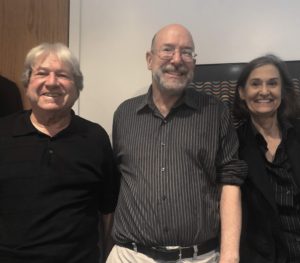
Museum of the City of New York
The Museum of the City of New York has two terrific exhibits, one permanent, on social change activism at the Puffin Foundation gallery, the other, just up on May 1st, called “city of workers, city of struggle“, also sponsored by the Puffin Foundation.
The great American social historian Howard Zinn wrote that significant social change comes from below. These two exhibits demonstrate this.
If you live in New York or plan to visit the city you might like to check them out. And for you far away listeners you’ll get a good virtual visit by going to the museums website at mcny.org
The permanent exhibit on social change activism is most relevant in today’s dire times of climate change and threatened nuclear catastrophe. The exhibits show by way of photos, documents, and videos how 14 past struggles were conducted and the gains that were won.
They include exhibits from the movement to abolish slavery, and the civil rights movement up to Black Lives Matter. Other exhibits bring to life anti-nuclear organizing, climate change activism, and the success of the mass mobilizations that won over public opinion and ended the war in Vietnam. Although the activism exhibit is permanent it is not unchanging. Right now a new section has been put up covering the struggle of trans people.
A second gallery exhibit, which opened on May 1, examines how the labor movement transformed New York. Called “city of workers, city of struggle” the exhibit shows how New York City, after two centuries of struggle, became the most unionized large city in the United States.
Guest – Steven H. Jaffe, Ph.D. the curator who organized the labor movement exhibit at the Museum of the City of New York.
—-
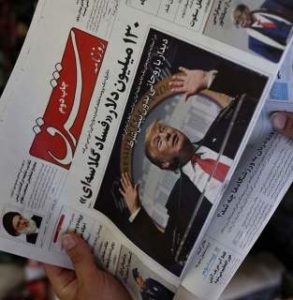

Current Analysis Of U.S. Threats Against Iran
In late 2017 and early 2018 Iran was shaken by a wave series of protests. Economic hardships from austerity measures spawned demonstrations that spread to more than 80 cities and towns, in a public showing of discontent not seen since the 2009 presidential elections there. American policy is aimed at exacerbating the hardships.
After the signing of a historic nuclear agreement in 2015, American and Iranian diplomats grew acquainted in a departure from the past when they weren’t allowed to talk. Many were hopeful that more talks on other topics might happen, including conflicts in Afghanistan, Iran, Syria and Yemen.
But then Donald Trump became president he pulled out of the nuclear deal and blamed Iran for the Middle East’s problems. He added Iran to the list of countries whose citizens would be banned from entering the United States. He designated the Iranian revolutionary guard is a terrorist organization.
He put severe economic sanctions on Iran causing terrible hardships to its citizens. He is trying to limit their sale of oil. He sent an aircraft carrier to the region and recently threatened to obliterate the country.
Guest – Phyllis Bennis is a fellow of the Institute for Policy Studies, where she works on anti-war, US foreign policy and Palestinian rights issues. She has worked as an informal adviser to several key UN officials on Palestinian issues. Her books including Calling the Shots: How Washington Dominates Today’s UN, and Understanding the Palestinian-Israeli Conflict.
———————-

———————-
Afghanistan War, CIA Sponsored Terror, Civil Liberties, Supreme Court, Truth to Power
Podcast: Play in new window | Download

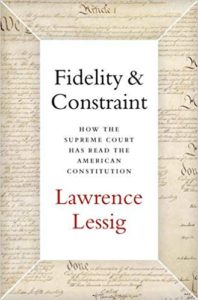
Fidelity and Constraint: How the Supreme Court Has Read the American Constitution
The U.S. Constitution is the oldest written constitution in the world. Interpreters of the Constitution are faced with the challenge of how, over time, to read a document that’s not only old but also inflexible.
In his new book Fidelity & Constraint, by Oxford University Press, Lawrence Lessig, one of the nation’s leading legal minds, explains that a fundamental approaches to interpreting the constitution is a process he calls translation. In fact, some of the most significant shifts in constitutional doctrine are products of the evolution of the translation process over time. In each new era, judges understand their translations as instances of “interpretive fidelity,” framed within each new temporal context.
Throughout American history, there has been a second fidelity in addition to interpretive fidelity: what Lessig calls “fidelity to role.”
In each of the cycles of translation the role of the judge — the ultimate translator – has also evolved. Old ways of interpreting the text now become illegitimate because they don’t match up with the judge’s perceived role.
When that conflict occurs, the practice of judges within our tradition has been to follow the guidance of a fidelity to role. Ultimately, Lessig not only shows us how important the concept of translation is to constitutional interpretation, but also exposes the institutional limits on this practice.
The first work of both constitutional and foundational theory by one of America’s leading legal minds, Fidelity & Constraint maps strategies that both help judges understand the fundamental conflict at the heart of interpretation whenever it arises and work around the limits it inevitably creates.
Guest – Lawrence Lessig is the Roy L. Furman Professor of Law and Leadership at Harvard Law School. Prior to rejoining the Harvard faculty, Lessig was a professor at Stanford Law School, where he founded the school’s Center for Internet and Society, and at the University of Chicago. He clerked for Judge Richard Posner on the 7th Circuit Court of Appeals and Justice Antonin Scalia on the United States Supreme Court. Lessig serves on the Board of the AXA Research Fund, and on the advisory boards of Creative Commons and the Sunlight Foundation.
—-
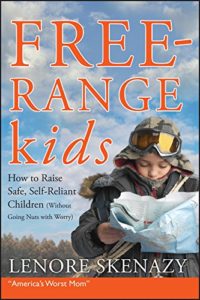
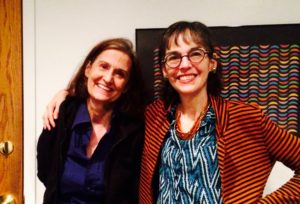
Free Range Kids
You may have heard about the shaming of parents who let their son or daughter walk to school by themselves, or ride public transportation alone. They’re often ridiculed on social media and cast as neglectful. But in some instances, the consequences have gone beyond public shaming.
In 2015 parents in Silver Spring, Maryland made national headlines they were investigated for child neglect for letting their children, ages 6 and 10, walk home from a park by themselves.
In another case Lenore Skenazy, a former New York Daily News columnist was called America’s worst mom after writing a column in 2008 about why she let her 9-year-old son ride the subway by himself.
Last year, Utah passed a law making it not a crime for parents to let their children play in a park without supervision or walk home alone from school. This is hopeful news for our guest Lenore Skenazy who has been advocating for so-called free range parenting laws for many years.
Under the law, neglect does not include allowing a child, whose basic needs are met and who is of sufficient age and maturity to avoid harm or unreasonable risk of harm, to engage in independent activities such as going to and from school by walking, running or bicycling, going to nearby stores or recreational facilities and playing outside.
A recent U.S. Census showed that 7 million of the nation’s 38 million children between the ages of 5 and 14 are left home alone on a regular basis, while the average time spent alone is six hours per week. Only a few states legislate an age under which kids may not be home alone.
Guest – Lenore Skenazy – New York City columnist-turned-reality TV show host got that title after letting her 9-year-old son take the subway, alone. In response to the enormous media blowback, she founded the book and blog, “Free-Range Kids,” which launched the anti-helicopter parenting movement. She has lectured internationally, including talks at Microsoft Headquarters and the Sydney Opera House, and has written for everyone from The Wall Street Journal to Mad Magazine. Yep. The Mad Magazine. And she’s a graduate of Yale.
———————

———————




















